Philosophy Statement
Science for the Christian is the study of God’s creation. The exploration of the creation reveals a direct appreciation of
the creative work of God. What can be known of God we know through the creation, through His word and by the Holy
Spirit. (For since the creation of the world God’s invisible qualities—his eternal power and divine nature—have been
clearly seen, being understood from what has been made, so that men are without excuse – Romans 1:20), but the
fallen nature of man and his frequent rebellion to acknowledge a Creator hinder this. Students will continually be called
on to see the divine order of creation and its implications for other subjects, able to manage the created world
according to what God has planned in the beginning.
Biblical Concepts for Science in General
God preserves His creation so that it continues to function as He planned. God controls every part of the natural worlds – His creation – the world we study in science. God created for His own purpose and pleasure. All of creation is meant to praise God and bring glory to Him God uses His creation, what we observe in nature, to teach eternal truth. God’s creation was perfect in the beginning. All of creation has been affected by man’s sin. God has provided an orderly world. The natural world, God’s creation, is constantly changing. God desires that we study science, the details of His creation. Man can never know all there is to know about the universe and about life. Men by nature are not neutral or objective observers of god’s universe; man’s ability to understand the truth is
impaired by sin.
Course Objective
Students will explore and experience a variety of areas within the field of science (NLL) including life, physical, and
earth sciences through the use of reading, research, discussion, participation in group and individual projects, and
utilization of the scientific research process and experiments (ET, DC) Students will observe and note the
responsibilities God has given us as stewards of our world and our environment (RUC & SCW). This will involve topics of
design, lifestyle and use of goods and energy and recycling (RUC, ET, & DC)
Textbooks
Science Explorer Series – Envir. Science, Chemical Building Blocks, Motion, Forces, and Energy
Materials: textbooks, Laboratory equipment, research material, experiments and projects
Time Allotment:
50 minutes 4 days per week
Course Content
- What is Science Why Science is useful to study.
- Scientific Method
- Observation and recording data
Life science unit:
- Organisms and Environment
- Climate and Biomes, Ecosystems and Biodiversity
- Stewardship of our Earth
Physical Science unit:
- Matter and its Properties
- Energy and its Forms
- Elements, Compounds & Mixtures,
- Gases, Liquids and Solids
- Periodic table
- Models of atoms Motion, Speed and Acceleration
- Calculation and measurement of speed, acceleration and motion
- Plate movement and Tectonics
Areas to be evaluated
- Homework assignments
- Individual and Group projects, Progressive tests
- Experiments, laboratory investigations and application of the scientific process


